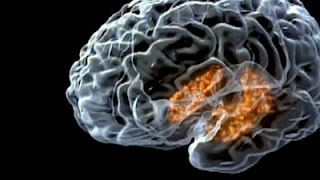Here are links to some songs you might find helpful as you study the nervous system.
This really slick song about the
nervous system was sent in by Marilyn R - This should win the Grammy for best use of autotune in the service of neuropsychological knowledge.
http://www.youtube.com/watch?v=YRwPMICvbT4
Video of the
spinal reflex arc - showing afferent and efferent pathways
http://youtu.be/wLrhYzdbbpE
Good video about the
action potential - shows lots of detail about how the action potential works to send the signal down the axon of a neuron. You might want to watch it a couple of times while going over your notes.
http://youtu.be/7EyhsOewnH4
Neuroscience for Kids is a site with lots of great stuff, much of which is at a simpler level than AP, but it can still be fun and help you with some of the basics. The Brain Chemical Song is a pretty good review of
neurotransmitters (if you don't mind the "Old McDonald" tune.)
http://faculty.washington.edu/chudler/songs.html
The
Neuron Song- Slim Brady ft. Melody Minaj is a rap that goes into some pretty good detail - you have to deal with some pretty bad recording techniques and some voices that could use autotune.
http://www.youtube.com/watch?v=8Sn9C4G-mJM
You can follow along with the lyrics which were posted on the YouTube page.
Nuron Song by Slim Brady ft.
Melody Minaj
CHORUS:
Just gonna stand there and tell you bout
Neurons,
So you don't fail the class and become a
moron,
Just gonna stand there and tell you bout
Dendrites,
Axons, Myelin Sheaths, Synapses and the like,
And all the things alike.
---
I can tell you bout them Dendrites, the
branching extensions of a neuron,
The lyrics of this song will tell you bout
them and they're dead on,
What do they do? They receive messages from
the last one,
Also, they happen to be connected to the
Axon!
That's the extension of this whole thing,
I mean, come on, what else could, possibly
bring,
The neural impulse, they are so cool, make
me wanna sing,
The part that covers it, it is called the
Myelin Sheath!
That part's function is to speed things up,
Another interesting things the all or
nothing principle,
It basically says when a neuron fires,
It's either on or, there's no in between,
I'm not a liar
So what I'm saying is go ahead, try as hard
as you want,
Lift up your arm as fast as possible and
flaunt,
The fact that when a neuron fires, it's on
or off,
Seriously, making a song a bout neurons is
tough..
CHORUS
And all the things alike
When you get sick, what do you turn to, is
it medicine?
For the neuron the Soma keeps it healthy,
and I kid,
You not, it keeps it firing faster than
Edison,
The next topic of talk, is the Refractory
Period!
Everyone needs breaks, so the neuron does
too,
Right after it fires, just a second or maybe
two,
Another aspect that just seems really cool,
Is Action Potential, I'll fill you in on the
news!
That is what the charge is called, I kid you
not,
That even thought the neurons never
technically touch,
The signal does not stop, how is this
possible you'll ask?
Why simply by the power of all the Synapse-
ses, they just fill in the gaps and,
chillin relaxin, sittin and passin, the
charge along,
I really hope this song will let me pass or
mom,
will beat me to a pulp, is that really what
you want Demars?
CHORUS
And all the things alike

















